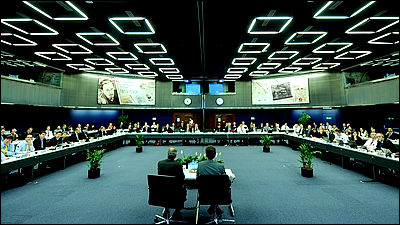Experts argue that AI should be recognized as the inventor of patents

Two scholars at the University of New South Wales in Australia published a paper arguing that 'governments around the world should enact intellectual property laws to allow AI to recognize that they are the inventors of patents,' AI It is said that not accepting as an inventor may have a long-term impact on the economy and society.
Artificial intelligence is breaking patent law
https://www.nature.com/articles/d41586-022-01391-x
Experts: AI should be recognized as inventors in patent law • The Register
https://www.theregister.com/2022/05/28/experts_ai_patent_law/
Legal scholar Alexandra George and AI expert Toby Walsh advocated that AI should be recognized as the inventor of the patent.
Under current law, the inventor of a patent is only human. Developer Steven Tyler has sued the Patent Office in the United States and the United Kingdom, saying that 'AI should also be granted patents,' but both have lost.
International patent standards were set by the Paris Convention for the Protection of Industrial Property , created in 1883, and the Trade-related Aspects of Intellectual Property , created by the World Trade Organization in 1994 ( TRPIS agreement). Neither treaty envisions inventions by AI.
The TRIPS Agreement states that 'all inventions are protected, provided that they are inventive step and industrially applicable in all technical fields, whether products or processes.' The terms 'invention,' ' inventive step, ' and 'industrial application possible' described here have legal definitions, and if any of them is not met, the inventor of the patent is not recognized.
Of these, whether or not to grant a patent for the invention of AI is in the part of 'inventive step', which indicates that 'the invention was not something that experts in the technical field could easily achieve based on the prior art'. George and Walsh point out that it depends.

'If a court or government decides that an AI invention can't be patented, the impact will be huge. Funders and businesses will think that their turn to investment will be limited,' they said. It undermines the incentive to use AI to pursue patents and useful technologies. Society may miss valuable inventions that save lives. '
Both George and Walsh are on the side of Taylor. 'It's not trivial to create a law or an international treaty from scratch, but it would be worse if it wasn't created at all. AI is changing the way science and inventions are. The public. We need a purpose-built IP law to contribute to the interests of ourselves. '
Related Posts:
in Note, Posted by log1i_yk







